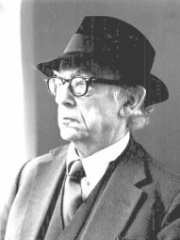
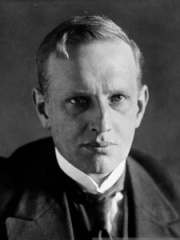
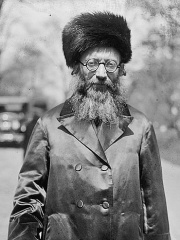
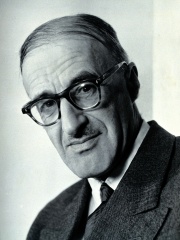
The Most Famous
PHILOSOPHERS from Latvia
This page contains a list of the greatest Latvian Philosophers. The pantheon dataset contains 1,267 Philosophers, 5 of which were born in Latvia. This makes Latvia the birth place of the 35th most number of Philosophers behind Tunisia, and Lebanon.
Top 5
The following people are considered by Pantheon to be the most legendary Latvian Philosophers of all time. This list of famous Latvian Philosophers is sorted by HPI (Historical Popularity Index), a metric that aggregates information on a biography's online popularity.

1. Isaiah Berlin (1909 - 1997)
With an HPI of 72.20, Isaiah Berlin is the most famous Latvian Philosopher. His biography has been translated into 62 different languages on wikipedia.
Sir Isaiah Berlin (6 June 1909 – 5 November 1997) was a Russian-British social and political theorist, philosopher, and historian of ideas. Although he became increasingly averse to writing for publication, his improvised lectures and talks were sometimes recorded and transcribed, and many of his spoken words were converted into published essays and books, both by himself and by others, especially by his principal editor from 1974, Henry Hardy. Born in Riga (now the capital of Latvia, then a part of the Russian Empire), he moved to Petrograd, Russia, at the age of 6, where he witnessed the Russian Revolution. In 1921 his family moved to England, and he was educated at St Paul's School, London, and Corpus Christi College, Oxford. In 1932, at the age of 23, Berlin was elected to a prize fellowship at All Souls College, Oxford. In addition to his own output, he translated works by Ivan Turgenev from Russian into English. During the Second World War he worked for the British Diplomatic Service. From 1957 to 1967 Berlin was Chichele Professor of Social and Political Theory at the University of Oxford. He was the president of the Aristotelian Society from 1963 to 1964. In 1966 he played a role in creating Wolfson College, Oxford, and became its founding president. Berlin was appointed a CBE in 1946, knighted in 1957, and appointed to the Order of Merit in 1971. He was the president of the British Academy from 1974 to 1978. He also received the 1979 Jerusalem Prize for his lifelong defence of civil liberties, and in 1994 he received the honorary degree of Doctor of Laws at the University of Toronto, for which occasion he prepared a "short credo" (as he called it in a letter to a friend), now known as "A Message to the Twenty-First Century", to be read on his behalf at the ceremony. Annual Isaiah Berlin Lectures are held, in Oxford, at Hampstead Synagogue, at Wolfson College, Oxford and at the Taylor Institute (organised by Italian Studies at Oxford), at the British Academy, and in Riga. Berlin's work on liberal theory and on value pluralism, as well as his opposition to Marxism and communism, has had a lasting influence.

2. Nicolai Hartmann (1882 - 1950)
With an HPI of 69.77, Nicolai Hartmann is the 2nd most famous Latvian Philosopher. His biography has been translated into 31 different languages.
Paul Nicolai Hartmann (German: [ˈhaʁtman]; 20 February 1882 – 9 October 1950) was a German philosopher. He is regarded as a key representative of critical realism and as one of the most important twentieth-century metaphysicians. His early work in the philosophy of biology has been cited in modern discussions of genomics and cloning.

3. Abraham Isaac Kook (1865 - 1935)
With an HPI of 64.40, Abraham Isaac Kook is the 3rd most famous Latvian Philosopher. His biography has been translated into 24 different languages.
Abraham Isaac HaCohen Kook (Hebrew: אַבְרָהָם יִצְחָק הַכֹּהֵן קוּק; 7 September 1865 – 1 September 1935), known as HaRav Kook, and also known by the Hebrew-language acronym Hara'ayah (הראי״ה), was an Orthodox rabbi, and the first Ashkenazi Chief Rabbi of British Mandatory Palestine. He is considered to be one of the fathers of religious Zionism and is known for founding the Mercaz HaRav Yeshiva.

4. Yeshayahu Leibowitz (1903 - 1994)
With an HPI of 62.09, Yeshayahu Leibowitz is the 4th most famous Latvian Philosopher. His biography has been translated into 19 different languages.
Yeshayahu Leibowitz (Hebrew: ישעיהו ליבוביץ; 29 January 1903 – 18 August 1994) was an Israeli Orthodox Jewish public intellectual and polymath. He was a professor of biochemistry, organic chemistry, and neurophysiology at the Hebrew University of Jerusalem, and an editor of Encyclopaedia Hebraica, comprehensive encyclopedia in the Hebrew language. he was known for his outspoken views on politics, religion and Jewish philosophy. Leibowitz said that the State of Israel and Zionism had become more sacred than Jewish humanist values and described Israeli conduct in the occupied Palestinian territories as "Judeo-Nazi" in nature while warning of the dehumanizing effect of the occupation on the victims and the oppressors. He was referred to as the "prophet of wrath" due to his frequent criticism of Zionism.
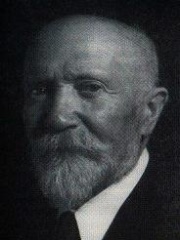
5. Nikolay Lossky (1870 - 1965)
With an HPI of 59.89, Nikolay Lossky is the 5th most famous Latvian Philosopher. His biography has been translated into 23 different languages.
Nikolay Onufriyevich Lossky (; 6 December [O.S. 24 November] 1870 – 24 January 1965), also known as N. O. Lossky, was a Russian philosopher, representative of Russian idealism, intuitionist epistemology, personalism, libertarianism, ethics and axiology (value theory). He gave his philosophical system the name intuitive-personalism. He spent his working life in St. Petersburg and, after his exile by the Bolsheviks in 1922, in Prague and New York. He was the father of the influential Christian theologian Vladimir Lossky.
People
Pantheon has 5 people classified as Latvian philosophers born between 1865 and 1909. Of these 5, none of them are still alive today. The most famous deceased Latvian philosophers include Isaiah Berlin, Nicolai Hartmann, and Abraham Isaac Kook.
Deceased Latvian Philosophers
Go to all RankingsIsaiah Berlin
1909 - 1997
HPI: 72.20
Nicolai Hartmann
1882 - 1950
HPI: 69.77
Abraham Isaac Kook
1865 - 1935
HPI: 64.40
Yeshayahu Leibowitz
1903 - 1994
HPI: 62.09
Nikolay Lossky
1870 - 1965
HPI: 59.89
Overlapping Lives
Which Philosophers were alive at the same time? This visualization shows the lifespans of the 5 most globally memorable Philosophers since 1700.

